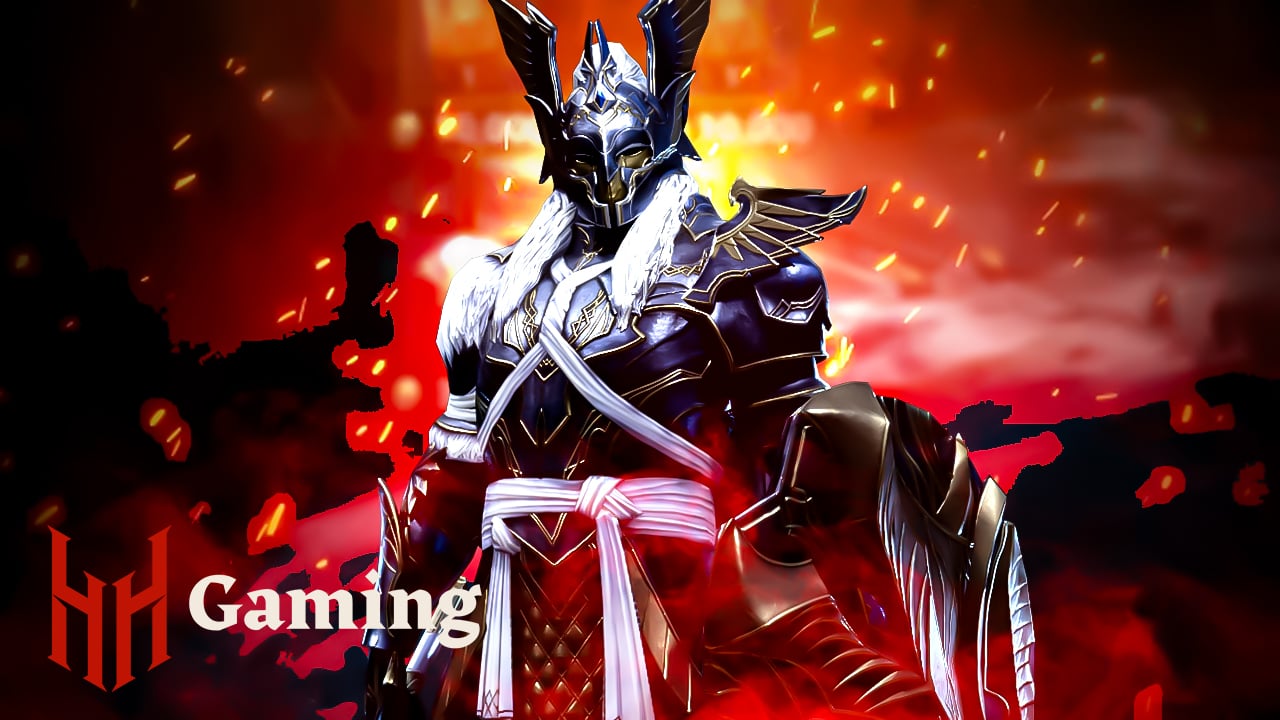
Raid Shadow Legends Lore: The Story of Strategos Islin
Strategos Islin is considered by some to be one of the finest commanders Aravia has ever produced. He has never attempted to disabuse anybody of that belief, for Islin’s keen military mind is matched only by his pride.
Islin first rose to prominence as a leader during the campaigns to establish High Elf colonies on the western coast of Peltas. As a junior officer without distinction, he commanded the defense of the White Tower, an Aravian coastal outpost attacked by the Orc warlord Gorr Bloodhand. The garrison was hugely outnumbered, but through the careful husbanding of supplies, and precise, deadly sallies through a hidden magical port in the tower’s flank, the defenders kept the enemy at bay until relief arrived.
The victory saw Islin promoted. Soon he had command of his own army during the campaign to secure a safe route from the western extent of the Valdemar Strait to the furthest north-eastern outpost, near the Thundermount, driving out a confederation of Orc clans and Ogryn tribes angered by the Aravian encroachment. Tactically adept, Islin lured the often numerically superior enemy into attacking a set position and then struck their flank with a hidden reserve. Islin’s abilities soon saw him commanding all High Elf forces on the Peltas coast. While the Elf presence there remained somewhat scattered and tenuous, under Islin’s direction it held on. No mere back-line general, at the Battle of Felwater Islin joined the counterattack against the Orc surge, doing brutal work with his two-handed broadsword, Eagle’s Talon, while at Dawnmoor he led the reserve to shore up a breach in the line, his shining helm and white cloak acting like a beacon for the near-overwhelmed High Elf soldiery.
Islin’s successes in Peltas had done much to restore Aravia’s reputation after a series of disastrous campaigns against the Dark Elves in Durham Forest. Queen Eva of Aravia bestowed upon him nobility and the role of chief military counsellor to the kingdom, that of strategos. In such a role he would not only command the Aravian armies, but was expected to play a part in the High Elf court, advising on any matters relating to the military or potential enemies and guiding the queen’s overall strategies.
War had made a hero of Islin, but after being recalled to Aravia he grew idle. His successes on the battlefield might have earned him renown, but the world of Aravian politics proved to be a different kind of test altogether. Used to the obedience of his soldiers, Islin struggled with the underhand tactics and shifting loyalties of the court’s members. Nevertheless, his record of military success still demanded respect, and he steadily amassed followers and political allies. He earned a reputation for bluntness and honesty, one which gained the invaluable favour of the queen herself. Other nobles with former military service or connections to Aravia’s armies also rallied to the former general, increasing his influence. He learned to not take courtiers at their word and to adapt and apply his strategic abilities towards political ends.
Islin had always been a proud man, but as he grew into his new role in the Aravian court, his arrogance increased. He was popular with the Aravian soldiery and with many of the common people, and soon was being courted by a number of different factions. He came to refer to himself as the White Eagle, an unsubtle nod to the great Elven ruler Basileus Roanas, who had stemmed the Demonspawn tide during the First Great War. Ultimately, his arrogance was his undoing, for his opponents were able to convince others that his bluff honesty was a cover for his true desire – to claim the throne.
How true claims of Islin’s planned coup were remains a point of conjecture. It seems unlikely that the thought of usurping Aravia’s queen had never crossed his proud mind, yet the belief of some that the armies of Aravia were just one order away from rising up in armed rebellion to put the White Eagle on the throne are also surely exaggerated. What is certain is that Islin’s opponents acted swiftly and decisively. The queen was convinced that islin was a threat to the realm, and after a trial that Islin claimed was rigged against him, he was banished from the kingdom.
Since that day Islin has travelled Anhelt, a noble without an estate, a general without an army. Though summarily stripped of the title of strategos, he still refers to himself by it, and claims that when he eventually makes his return to Aravia, it will herald the rising of his armies and the long-awaited succession of the White Eagle to the throne.

